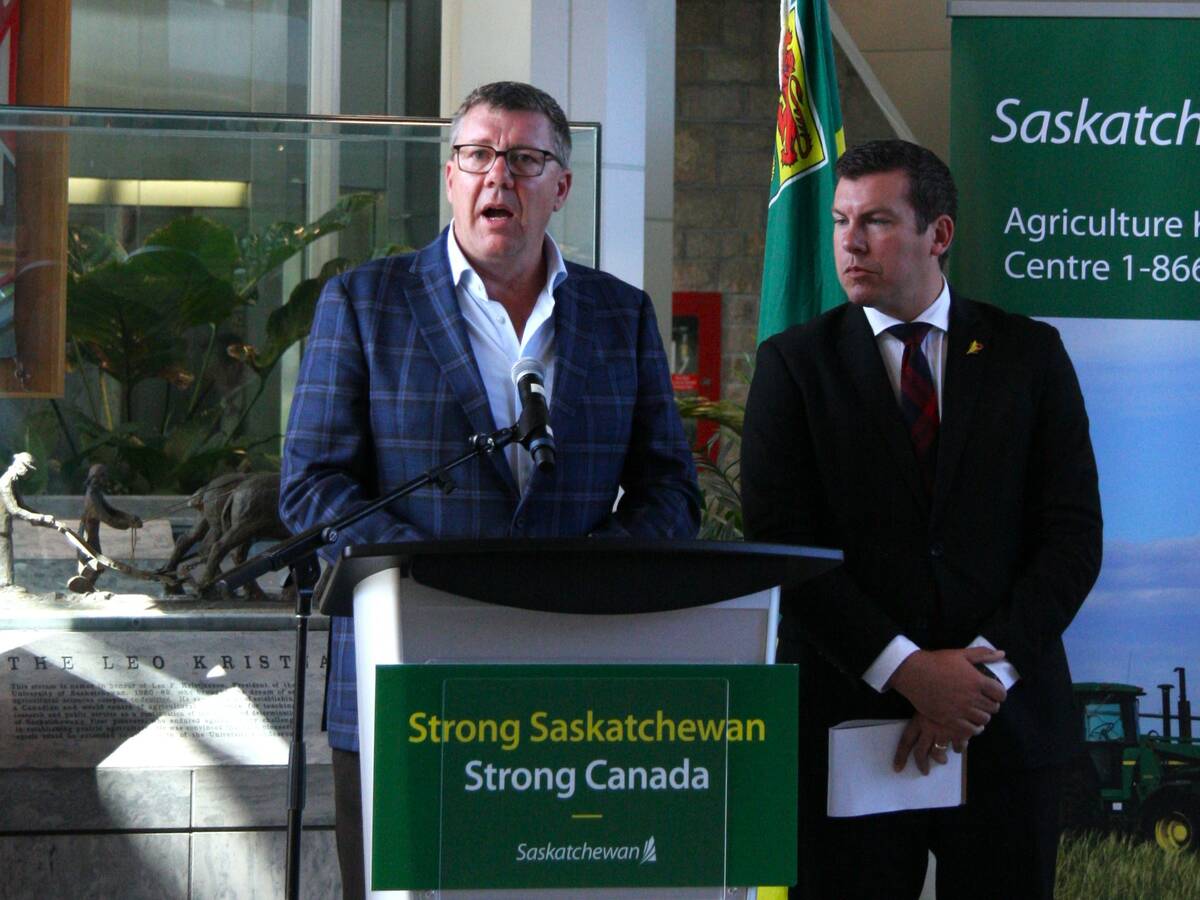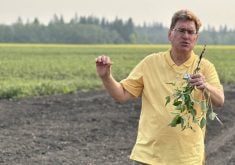There were times when Dawn Harris, Max Polon and Jim Green probably had more funds in their personal chequing accounts than the Manitoba Canola Growers Association had.
It wasn’t that they were wealthy people, but the MCGA was poorly funded.
“The shoestring budget really was a shoestring,” said Harris, who along with Polon and Green were awarded for their longtime dedication to Manitoba canola growers during Manitoba Ag Days held in Brandon Jan. 20-22.
“It was only thousands of dollars per year we had to work with, not tens of thousands or hundreds of thousands.”
Read Also

Key actions identified to address canola tariffs
Federal and Saskatchewan governments discuss next steps with industry on Chinese tariffs
Harris, Polon and Green were instrumental in convincing farmers to support a canola checkoff in Manitoba, which allowed research funding to be raised and kept Manitoba on par with its sister provinces.
“As the other provinces got their checkoffs, they began having say on research and development and we weren’t there with them,” said Harris of the situation after Alberta instituted a canola checkoff in 1989 and Saskatchewan followed in 1991.
“We were not contributing to research, marketing or anything. We were just keeping the association going.”That all changed in 1996, when the Manitoba government approved a checkoff. Manitoba growers were able to reward relevant research and market development with their money.
“It gave us a lot more credibility,” said farmer and MCGA director Bruce Dalgarno.
“Whether it’s being able to sit at the same table with researchers or government people or industry people, it was good to be able to be there and have input.”
Dalgarno said Manitoba canola growers face certain environmental and disease situations that are different from those faced by farmers in Alberta and Saskatchewan, so having an independent Manitoba voice was important for farmers.
As well, he said he didn’t believe private companies would do fundamental, producer-focused research that farmers need.
“Industry is just going to do research on things that they can recoup dollars for. We’re interested in agronomy and stuff that helps all farmers.”
Last year, the Manitoba canola checkoff was doubled, from 50 cents per tonne to $1, which should in an average production year net the organization more than $2 million.

















